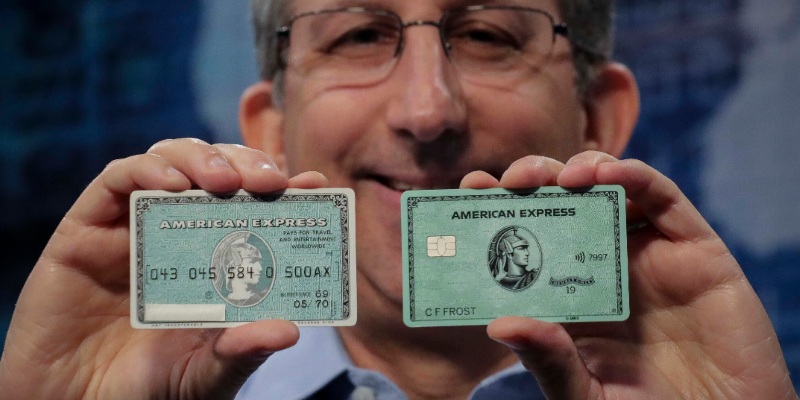Strategies For Quickly Eliminating Student Debt
Dec 28, 2023 By Susan Kelly
The burden of repaying student debt is one that no one welcomes. It may damper your financial plans and keep you from accomplishing your goals. In some cases, it may not be a good idea to pay more on your student loans. Review several repayment options to help you pay off your debt early if you want, and see the situations in which doing so might be a poor choice.
Should You Prepay Student Loans?

Getting rid of student loans as soon as feasible is a priority for some people. There are circumstances, however, where you should take your time paying off your student debts.
You should not forego saving for retirement today to pay off your college loans earlier. For instance, if your job has a 401(k) matching program, it could be better to contribute the minimum required to receive the match rather than make additional payments on your student loans.
A Quick Guide To Repaying Your Student Loans
How to pay off student loan fast? Student debt repayment is a task that takes planning and forethought if you want to see results soon. Think about these tried-and-true techniques:
Pay More Monthly
How to pay off your student loan fast as Paying more than the monthly minimum on your student loan is the most direct route to getting it paid early. To discover how your extra payments may affect your student loans, utilize a student loan calculator. Play around with the numbers to discover how much sooner you may be debt-free.
Extra payments are more challenging than they seem to be in theory. Additional payments are handled in various ways depending on the loan servicer. Your additional funds may be used for interest by certain lenders or your next payment by others.
However, it could be more prudent to put the extra cash toward paying down your loan's principal or the loan with the highest interest rate.
Pay Biweekly
The typical payment frequency for student loans is once per month. The difference is that if you pay your student loans every two weeks, you'll make an additional payment each year.
To explain how it functions: Suppose you make biweekly payments on your student loans instead of one monthly payment. Make 26 payments per year if you pay a half-payment every two weeks.
For an annualized rate, this amounts to 13 payments in full. If you want to make payments monthly, you will only have to make 12 payments per year.
Evaluate Your Repayment Plan
How to pay your student loan fast with low income as Shortening your loan's payback period might help you finish paying it off sooner. But the monthly cost would be greater with a shorter payback term. Before making the change, be sure you have enough money to cover the new payment.
Federal loan borrowers can choose from a few different repayment options. Log onto your FSA account to check which FSA program you are presently registered in. Standard or progressive payment plans with a 10-year duration are the shortest options.
Those who aren't enrolled in either of those programs and need to progress toward loan forgiveness can adjust their repayment schedule.
Attempt to Recover Lost Funds

In this context, "found money" is rightfully yours but has gone unclaimed. Possible sources of unclaimed funds include financial institutions, government organizations, insurance providers, and even former employers. Find misplaced cash by perusing government websites.
Make sure you search for lost cash in every state you've ever lived in, no matter how briefly. If you are married, you should try to secure financial support for both of you. It's possible to claim to find money in someone else's name if you've inherited money from them.
Make Do with Bonuses
If paying off your student debts fast is a top priority, you should put any unexpected windfalls toward them. Inheritances, bonuses, and tax returns are all examples of windfalls. A financial windfall occurs when an individual receives a sum they had not anticipated receiving.
Find a way to put some of your unexpected money toward your debts. Which amount you select is determined by your other priorities and costs. Pay for the things you need right away, and then think about building your emergency fund.
Consider Refinancing
If your interest rate on your student loans is high, Refinancing might help you pay them off sooner. Suppose you are paying too much interest on your current student loans. In that case, Refinancing might mean transferring to a new lender that could give you a better interest rate or more favorable repayment conditions.
Calculating the potential savings from refinancing is easy with the help of a dedicated tool. Say you owe $40,000 on a 10-year loan with 7% interest. $465 will be charged to your credit card each month.
-
 Investment Nov 20, 2023
Investment Nov 20, 2023IMF research shows that the system plays a key role in the financing of SMEs
In MENAP and CCA regions, the contribution of output and employment is smaller than other regions, which can be seen through the average share of SME loans.
-
 Mortgages Jan 28, 2024
Mortgages Jan 28, 2024Top 4 Question to Ask Your Mortgage Broker or Lender
Purchasing a home is an exciting and significant life event. Whether you're purchasing a brand-new home or seeking to refinance, finding the correct mortgage is a crucial step. When purchasing or refinancing a house, you must ask the appropriate questions to ensure you possess all the information required to make an informed choice.
-
 Banking Oct 09, 2023
Banking Oct 09, 2023American Express Green Card Review: Is it Worth It
In this in-depth American Express Green Card review, we'll break down the pros and cons of this credit card to help you decide if it's worth adding to your wallet.
-
 Investment Nov 06, 2023
Investment Nov 06, 2023Pet Insurance Comparison: ManyPets vs. Spot
In this article, we will comprehensively compare two prominent players in the pet insurance industry, i.e., ManyPets and Spot.
